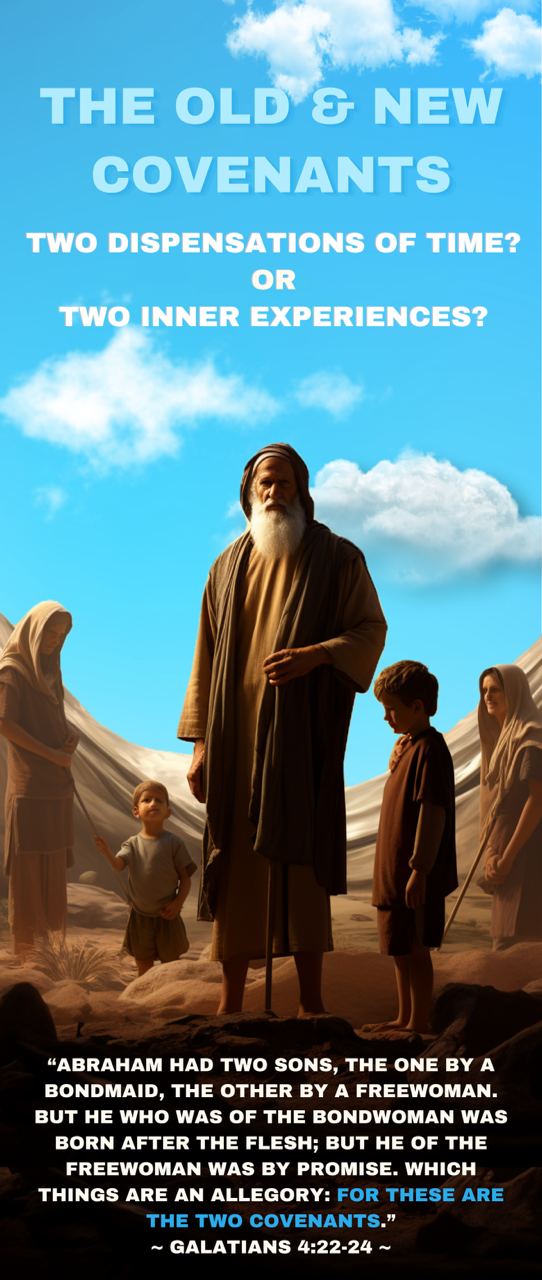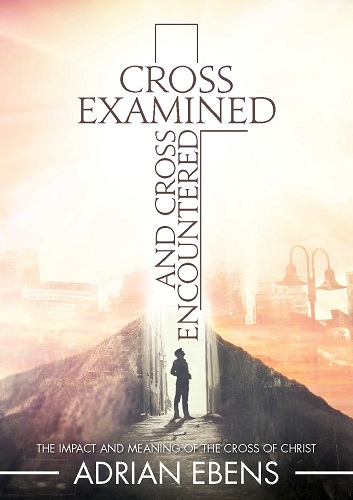(Genesis 22:1-2) Why Did God Command Abraham to Sacrifice Isaac?
“Now it came to pass after these things that God tested Abraham, and said to him, ‘Abraham!’ And he said, ‘Here I am.’ Then He said, ‘Take now your son, your only son Isaac, whom you love, and go to the land of Moriah, and offer him there as a burnt offering on one of the mountains of which I shall tell you.’” (Genesis 22:1, 2; New King James Version)
 Many Christians and non-Christians come to the wrong conclusions when reading of this event. Since Isaac was the son of promise (Genesis 17:19), why would God command Abraham to offer Isaac up as a burnt offering? After all, God did stop Abraham at the last second:
Many Christians and non-Christians come to the wrong conclusions when reading of this event. Since Isaac was the son of promise (Genesis 17:19), why would God command Abraham to offer Isaac up as a burnt offering? After all, God did stop Abraham at the last second:
“But the Angel of the Lord called to him from heaven and said, ‘Abraham, Abraham!’ So he said, ‘Here I am.’ And He said, ‘Do not lay your hand on the lad, or do anything to him; for now I know that you fear God, since you have not withheld your son, your only son, from Me.’ Then Abraham lifted his eyes and looked, and there behind him was a ram caught in a thicket by its horns. So Abraham went and took the ram, and offered it up for a burnt offering instead of his son.” (Genesis 22:11-13)
Most conclude this was only a test of Abraham’s faith to see how much he loved and trusted God. One online commentator named Hanna Knight sarcastically compares the story to something a middle school girl does to see how much their first boyfriend likes them.
Middle school girl: “Can you get me some ice cream?”
Boyfriend: “yeah, sure”
Middle school girl: “LOL! Just kidding! I just wanted to see if you love me enough to get me ice cream.”
Another online commentator says:
“If your God is asking you to off your own son, maybe the relationship between you and this God needs just a little bit of re-examination. Just sayin’ there seems to be a bit of abuse there, from my perspective.” (Jeff Pinner)
To be honest, the above comments are very reasonable. It is very true that the relationship between Abraham and God needed to be re-examined. God brought this re-examination in the form of a test. But contrary to popular belief, the test wasn’t to see if Abraham loved God enough to kill his own son, but was a test to draw out a sinful misconception Abraham had of the God he desired to serve.
Context for the Abraham and Isaac Story
We must remember that Abraham originally came from the region of "Ur of the Chaldees" (Babylon; Nehemiah 9:7) which was steeped in the sacrifice/appeasement mindset. Scripture is clear that God never desired nor even required a sacrifice in order to appease Him:
“Sacrifice and offering thou didst not desire; mine ears hast thou opened: burnt offering and sin offering hast thou not required.” (Psalm 40:6)
“’To what purpose is the multitude of your sacrifices to Me?’ Says the Lord. ‘I have had enough of burnt offerings of rams And the fat of fed cattle. I do not delight in the blood of bulls, Or of lambs or goats.’” (Isaiah 1:11)
“For I spake not unto your fathers, nor commanded them in the day that I brought them out of the land of Egypt, concerning burnt offerings or sacrifices: But this thing commanded I them, saying, Obey My voice, and I will be your God, and ye shall be My people: and walk ye in all the ways that I have commanded you, that it may be well unto you.” (Jeremiah 7:22, 23)
It was a result of sin that man’s mind became warped concerning the character of God. Over time the true meaning of why God introduced the sacrifices was distorted and thus man began to perceive blood offerings as a means to appease an angry god.
It naturally follows that if God is demanding a sacrifice to be appeased, then the more costly the gift sacrificed, the greater the satisfaction of divine wrath. The prophet Micah speaks into this thought process in this way:
“With what shall I come before the LORD, and bow myself before the High God? Shall I come before Him with burnt offerings, with calves a year old? Will the LORD be pleased with thousands of rams, ten thousand rivers of oil? Shall I give my firstborn for my transgression, the fruit of my body for the sin of my soul?” (Micah 6:6-7)
It became common amongst pagan nations to offer their children to their gods in appeasement. Moses was instructed to prevent these horrific acts as follows:
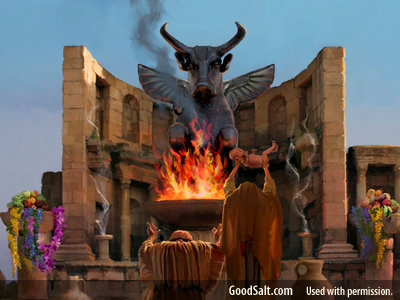 “And you shall not let any of your descendants pass through the fire to Molech, nor shall you profane the name of your God: I am the LORD.” (Leviticus 18:21)
“And you shall not let any of your descendants pass through the fire to Molech, nor shall you profane the name of your God: I am the LORD.” (Leviticus 18:21)
This was a very important Command because the land that Israel was going into had practiced child sacrifice for centuries. God later rebuked His people because, instead of destroying the practices of the nations, they had “mingled among the heathen, and learned their works. And they served their idols: which were a snare unto them. Yea, they sacrificed their sons and their daughters unto devils, And shed innocent blood, even the blood of their sons and of their daughters, whom they sacrificed unto the idols of Canaan: and the land was polluted with blood” (Psalm 106:35-38).
Since Moses knew this and was not born into this type of religion, if he had heard a voice commanding him to kill his son, he would know it was from Satan. God did not need to speak to Moses in this way. This doesn't mean the voice Abraham heard was from Satan, but that God did need to speak to Abraham in this way. In the time of Abraham, the practice of child sacrifice was widespread. Having come out of the region of Babylon, and especially when he entered into the land of Canaan (Genesis 11:31), Abraham was not only aware, but even influenced by this practice.
“… The Bible paints a picture of Canaanite society dominated by a religious system that was both licentious and cruel. Canaanite gods demanded human sacrifice and more specifically, the sacrifice of children. (Jeremiah 19:5) … The Bible is clear that child sacrifice was a regular feature of the religion of the Canaanites and the surrounding nations. (Deuteronomy 12:31). … According to the Bible, centers of worship for Canaanite gods such as Molech and the Baal’s were set up in Judah and Israel by apostate kings. Child sacrifice was even practiced in the Valley of Hinnom just outside of Jerusalem. Yet religious reformers such as King Josiah pulled down these places and rendered them unfit for use, ‘He also made unfit for worship Topheth, which is in the Valley of the Sons of Hinnom, so that no one could make his son or his daughter pass through the fire to Molech.’ (2 Kings 23:10)." (biblereadingarchaeology.com)
God says that child sacrifice has never entered His mind:
“They have also built the high places of Baal, to burn their sons with fire for burnt offerings to Baal, which I did not command or speak, nor did it come into My mind.” (Jeremiah 19:5)
Since God is obviously against child sacrifice, and directed His people to rid such a practice from the land, why would He command Abraham to do it?
The Principle of Mirror Language
Many times throughout Scripture, God uses mirror language by commanding things that fallen man desires. He does this in order to draw out the sinfulness of man in hopes to bring us to repentance. For example, in the book of Ezekiel God says He will answer and command things according to the multitude of man’s idols in order to magnify what’s in our own heart:
“Therefore speak unto them, and say unto them, Thus saith the Lord GOD; Every man of the house of Israel that setteth up his idols in his heart, and putteth the stumblingblock of his iniquity before his face, and cometh to the prophet; I the LORD will answer him that cometh according to the multitude of his idols; That I may take the house of Israel in their own heart, because they are all estranged from me through their idols.” (Ezekiel 14:4, 5)
Paul speaks of this same principle in Romans chapter 5: “Moreover the Law entered, that the offence might abound. But where sin abounded, grace did much more abound” (Romans 5:20). When God’s Law enters the heart, our sins will be exposed and will abound. God doesn’t do this to condemn, but in order for us to acknowledge and confess those sins, seeking His grace which much more abounds.
This is what’s going on in the conversation between God and Abraham about sacrificing Isaac. Because God never desired or required sacrifices, it was never God’s intention for Abraham to kill his son, nor was it a test to see how much Abraham loved Him. This test was to cause Abraham’s sacrificial/appeasement mindset to abound. As a result, Abraham would find God’s grace which much more abounds.
Is There Another Way to Read It?
Another thing that is quite interesting is when we look carefully at the Hebrew words Moses used to write about this incident. Consider the phrase “offer him [Isaac] for a burnt offering” (Genesis 22:2). The Hebrew word for “offer” is עָלָה (alah) and contains the following meanings in Brown, Driver and Briggs Dictionary:
“To bring up, cause to ascend or climb, cause to go up, to bring up, bring against, take away, to bring up, draw up, train, to cause to ascend, to rouse, stir up (mentally), to offer, bring up (of gifts), to exalt, to cause to ascend, offer.”
Within this context, we see how the Young’s Literal Translation renders this word:
“And He saith, ‘Take, I pray thee, thy son, thine only one, whom thou hast loved, even Isaac, and go for thyself unto the land of Moriah, and cause him to ascend there for a burnt-offering on one of the mountains of which I speak unto thee.’” Genesis 22:2 (YLT)
As they were going to climb Mt Moriah, the word “ascend” is a natural choice for such a journey. The word for “burnt offering” (עֹלָה/olah), which is very similar to alah, however carries two meanings. The first is “a burnt offering” and the second is “ascent, stairway or go up.” Strong’s Concordance renders it this way:
“Feminine active participle of H5927; a step or (collectively stairs, as ascending); usually a holocaust (as going up in smoke): – ascent, burnt offering (sacrifice), go up to.”
Some translations use the phrase “ascending offering” but notice how the word olah (which is translated “burnt offering” above) is translated in the following verse:
“And there were seven steps to go up (olah) to it, and the arches thereof were before them: and it had palm trees, one on this side, and another on that side, upon the posts thereof. (Ezekiel 40:26; King James Version)
It says nothing about a sacrifice or an offering. Therefore, is it possible that what God spoke to Abraham could be translated in the following way:
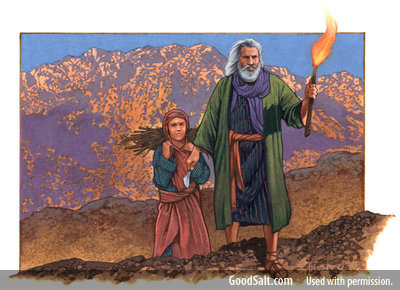 “Then He said, ‘Take now your son, your only son Isaac, whom you love, and go to the land of Moriah, and ascend there and go up on one of the mountains of which I shall tell you.’” (Genesis 22:2)
“Then He said, ‘Take now your son, your only son Isaac, whom you love, and go to the land of Moriah, and ascend there and go up on one of the mountains of which I shall tell you.’” (Genesis 22:2)
If this is correct, would it not explain the mirror that is operating in the text? Knowing Abraham’s mindset from where he came from, God knew how Abraham would understand the words He spoke to him. The way that Abraham understood God reveals the sacrificial-appeasement mindset that was in him which God desired to bring to the surface.
The glorious work of the Old Covenant is to show us in a mirror our sinfulness. The promise given to Abraham that he would be “a father of many nations” (Genesis 17:4, 5) depended on the life of Isaac, and Abraham would have faced fears of his son’s future, especially as he was struck every day with his neighbors sacrificing their children. God tested him on this fear as to whether He would trust God. If Abraham had trusted God from the start, then he never would have had to face this test. The Law can’t mirror what is not there.
We see a similar test in the story of king Solomon and the two women claiming maternal ownership over one baby:
“Then the king said, ‘Bring me a sword.’ So they brought a sword before the king. And the king said, ‘Divide the living child in two, and give half to one, and half to the other.’ Then the woman whose son was living spoke to the king, for she yearned with compassion for her son; and she said, ‘O my lord, give her the living child, and by no means kill him!’ But the other said, ‘Let him be neither mine nor yours, but divide him.’ So the king answered and said, ‘Give the first woman the living child, and by no means kill him; she is his mother.’” (1 Kings 3:24-27)
The command to use the sword revealed what was in the heart of the two women. This also goes for any time God has commanded the use of the sword1, or of stoning2, or even animal sacrifices3 etc. Solomon had no intention of really cutting the child in half. Just as Solomon commanded the child to be slain with the sword that he might reveal what was in the heart of the two mothers, so God “commanded” Abraham and allowed him to believe he was to slay his son that He might reveal what was in Abraham’s heart. Once Abraham realized it himself, God could heal it and Abraham could grow in grace and understanding.
This story is vital because it diagnoses the human problem. In the command of God, sin was caused to abound in Abraham and reveal that which was hidden. There was no way to avoid the severity of the test, not because God required it but because of the wrong understanding Abraham had about God’s character.
A Substitutionary Atonement?
If we take this story as most Christian writers believe, then when Isaac was spared and the ram which was caught in the thorns was slain instead (Genesis 22:13), the work of Abraham in raising the knife to kill his son is understood as God demanding the death of something to satisfy His wrath and justice. It frames the whole atonement in the pagan context of sacrificial appeasement, commonly called Penal Substitution.
“The penal substitution theory teaches that Jesus suffered the penalty for mankind's sins. Penal substitution derives from the idea that divine forgiveness must satisfy divine justice, that is, that God is not willing or able to simply forgive sin without first requiring a satisfaction for it.” (Wikipedia)
The truth is, because God’s mercy is everlasting (Psalm 100:5), there was never any need of providing a substitutionary atonement on behalf of sinful man. All man had to do was simply believe in God’s forgiveness. Instead, sin has caused us to believe that God needs to punish and kill someone for breaking His rules. The prevailing teaching among Christians is that God provided a substitutionary atonement in His Son Jesus. Instead of killing us, God apparently killed His own Son because someone had to pay. Listen to how Charles Spurgeon (1834-1892), in his sermon Particular Redemption, describes his understanding of the atonement:
“There was never an ill word spoken, not an ill thought conceived, not an evil deed done, for which God will not have punishment from some one or another. He will either have satisfaction from you, or else from Christ. If you have no atonement to bring through Christ, you must for ever lie paying the debt which you never can pay, in eternal misery; for as surely as God is God, He will sooner lose His Godhead than suffer on sin to go unpunished, or one particle of rebellion unrevenged. You may say that this character of God is cold, and stern, and severe. I cannot help what you say of it; it is nevertheless true. Such is the God of the Bible.”
This false theory of atonement is what Adam brought to the surface when he shifted the blame from himself onto Eve and ultimately upon the Son of God – “The woman whom THOU gavest to be with me, she gave me of the tree, and I did eat” (Genesis 3:12). This is why Christ is called, “the Lamb slain from the foundation of the world” (Revelation 13:8). It wasn’t because God condemned Him to die in our place, but because sinful man condemned Him to die in our place.
The ram caught in the thorns and then killed by Abraham represented the Lamb of God who was forced to wear a crown of thorns and then be murdered by sinful man. God did not send Christ to die in order to satisfy His wrath, but would offer up His Son, giving Him over to OUR faulty appeasement-minded theology in order to satisfy OUR pagan understanding of atonement. It was the only way to break Satan’s spell over us so that we could finally believe God has forgiven us. By allowing us to kill His Son, God caused our hostility and lack of faith towards Him and His Son to come to its fullness (Daniel 9:24; Romans 8:7).
Scripture tells us that righteousness was accounted unto Abraham because of his faith that God would be able to resurrect Isaac:
“By faith Abraham, when he was tested, offered up Isaac, and he who had received the promises offered up his only begotten son, of whom it was said, ‘In Isaac your seed shall be called,’ concluding that God was able to raise him up, even from the dead, from which he also received him in a figurative sense.” (Hebrews 11:17-19)
Take note that Abraham “offered up Isaac” but did not kill him. Likewise, God offered up His Son but did not kill Him. God had promised Abraham a son through his barren wife Sarah, but Abraham's distrust in God lead him to seek out Hagar in order to "help" God carry out His promise. God rejected Abraham's son Ishmael as being the chosen child of promise and again declared that He would fulfill this promise Himself through Sarah. Once Isaac was born, Abraham's faith began to grow to the point that he was willing to sacrifice his son Isaac even though he fully believed that Isaac was the child of promise. He "concluded that God was able to raise him up, even from the dead." Thus Abraham's willingness to sacrifice Isaac not only brought out his pagan sacrificial mindset, but also brought out his faith in God to the full, which is what God was looking for this whole time.
"He (Abraham) staggered not at the promise of God through unbelief; but was strong in faith, giving glory to God; And being fully persuaded that, what He (God) had promised, He (God) was able also to perform. And therefore it was imputed to him for righteousness." (Romans 4:20-22)
Abraham believed God would resurrect Isaac, thus the key to our understanding is the resurrection of Christ:
“Therefore we are buried with Him (Christ) by baptism into death: that like as Christ was raised up from the dead by the glory of the Father, even so we also should walk in newness of life.” (Romans 6:4)
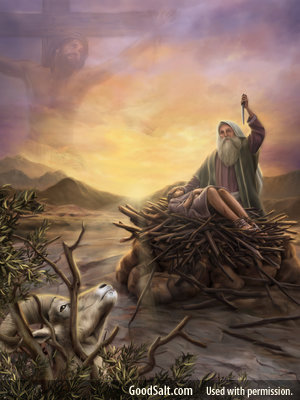 With a correct understanding of the death and resurrection of Christ, the true Seed of Abraham (Galatians 3:16), we will “walk in newness of life”; for it is by this offering up of Himself that the Messiah would “cause the sacrifice and the oblation” mindset “to cease” from our warped thinking (Daniel 9:27).
With a correct understanding of the death and resurrection of Christ, the true Seed of Abraham (Galatians 3:16), we will “walk in newness of life”; for it is by this offering up of Himself that the Messiah would “cause the sacrifice and the oblation” mindset “to cease” from our warped thinking (Daniel 9:27).
Did Abraham see and experience this mindset change? Did he finally break free from the Old Covenant mindset (of trying to perform what God has promised to do Himelf) and enter the New (by having faith that what God has promised, He will do)? One would have to wonder due to the fact that between Genesis chapters 12 and 22 it mentions Abraham building sacrificial altars five times, the last of these being the incident with Isaac on Mt Moriah. For the next 50 years of Abraham’s life there is no more record of him building a sacrificial altar. Did he experience the Spirit of Christ who spoke through David saying…
“For You (God) do not delight in sacrifice, otherwise I would give it; You are not pleased with burnt offering. The sacrifices of God are a broken spirit; A broken and a contrite heart, O God, You will not despise.” (Psalm 51:16, 17; New American Standard Version, 1995)
Could this be why Christ said, “Your father Abraham rejoiced to see My day: and he saw it, and was glad” (John 8:56)?
1 See the article: Didn’t God Command the Israelites to Slaughter Men, Women, and Children With the Sword?
2 See the article: Why Did God Command the Horrific Death Sentence of Stoning?
3 See the article: Why Did God Institute Animal Sacrifices?

